The Church with a capital “C” is not a four-walled building.
Being part of the Church requires “going out” into the world. That means meeting people where they are; it means being attentive to the circumstances of others, to know what they hope for and how they might be hurting. Pope Francis has coined a term for this kind of Church, calling it “La Iglesia en Salida”—the Church that goes out.
And at the forefront of this Church is a new generation of Catholic leaders.
Alicia Meza (below left) from the Diocese of Fresno, California, and Valeria Flores (below right) from the Diocese of Yakima, Washington, are 2024 graduates of Boston College and Fordham University, respectively, through scholarships made possible by Catholic Extension Society.
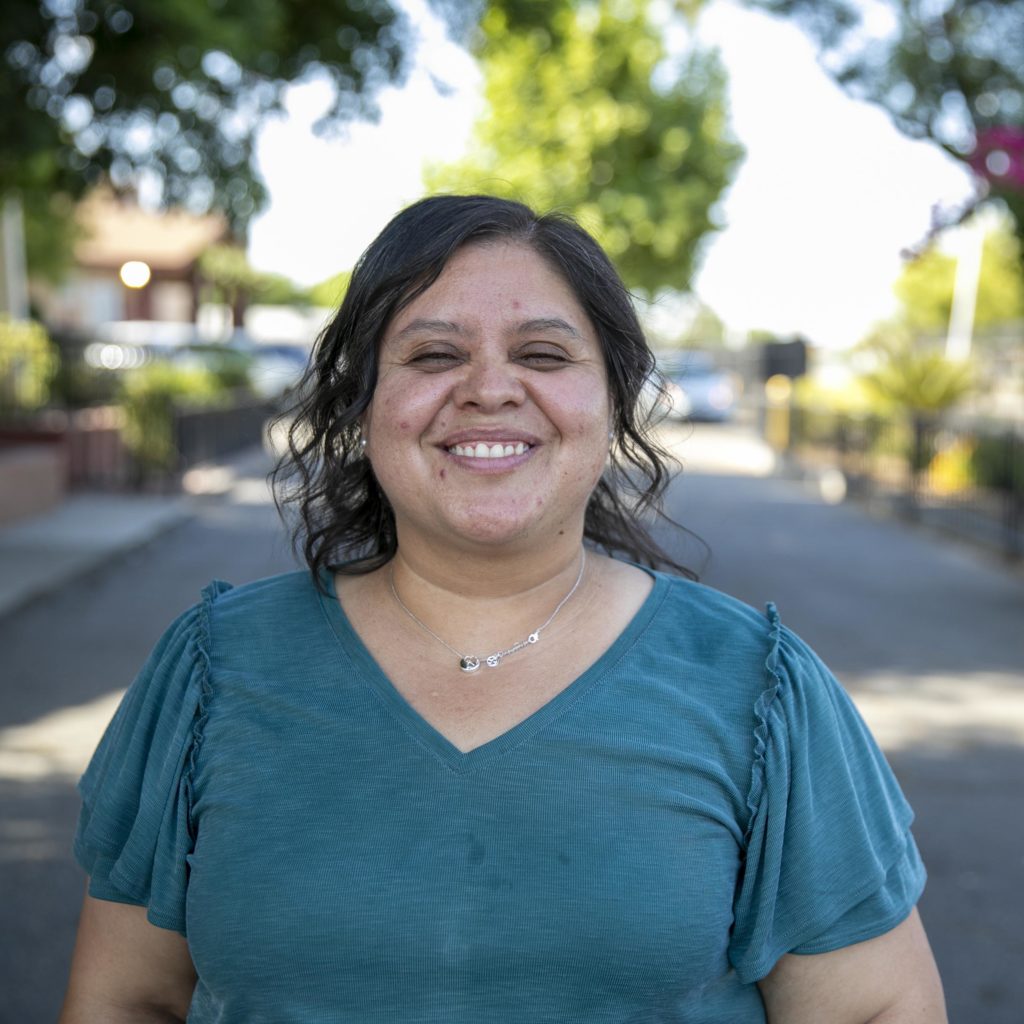
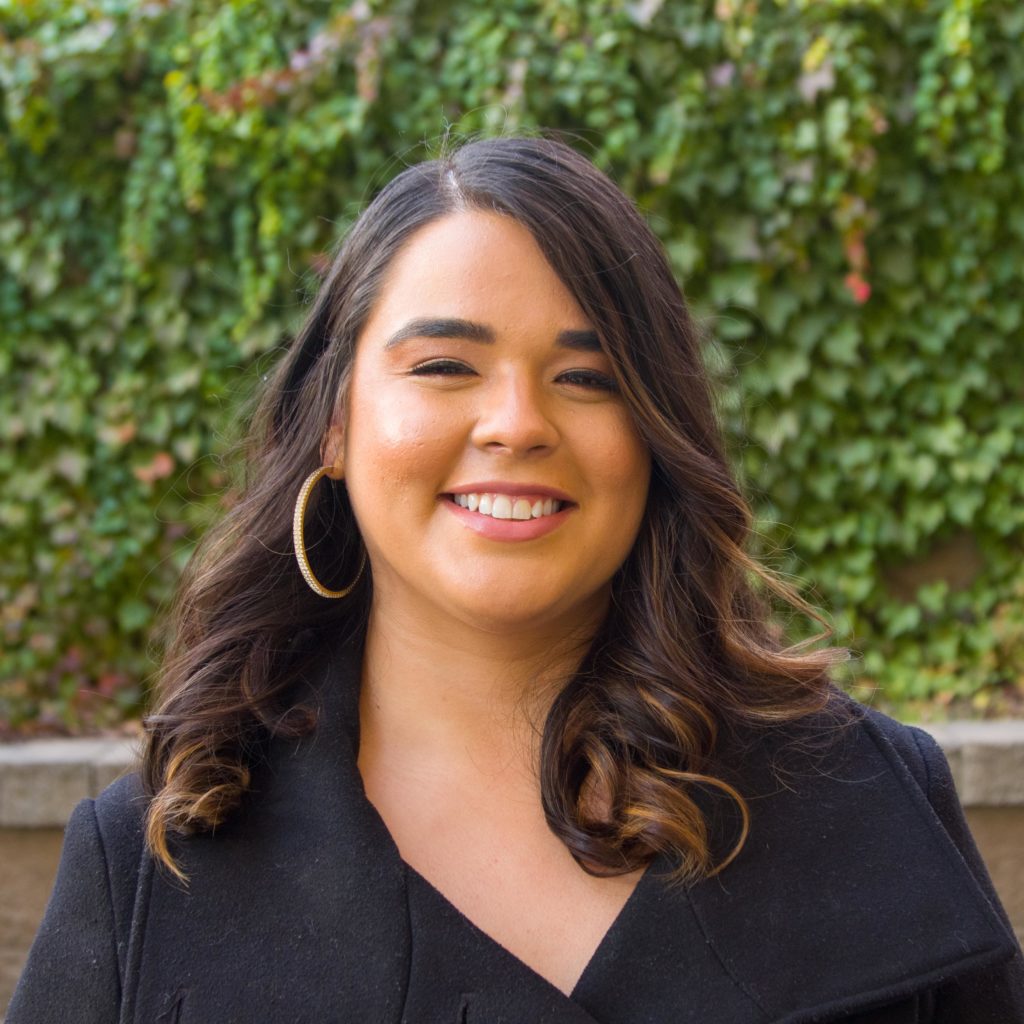
Students in this program gain hands-on pastoral experience during their pursuit of a master’s degree in theology. Both Meza and Flores are bursting with energy to help the Church grow.
And most importantly, they each listen to and recognize those that feel voiceless, ensuring them that they are at the heart of our Church and not its peripheries.
The stone the builders rejected
After her newborn son had fought off a life-threatening kidney infection, Alicia Meza wanted to have her baby baptized as soon as possible.
But unfortunately, a moment that was supposed to be a celebration turned to a shattering disappointment. Meza remembers receiving a bureaucratic response from the church as she urgently sought to make baptismal arrangements.
“It was like they were telling me, ‘I don’t have time for you,’” Meza recalled. “It just felt like we were a burden to even ask questions. I left feeling sad.”
She said to herself,
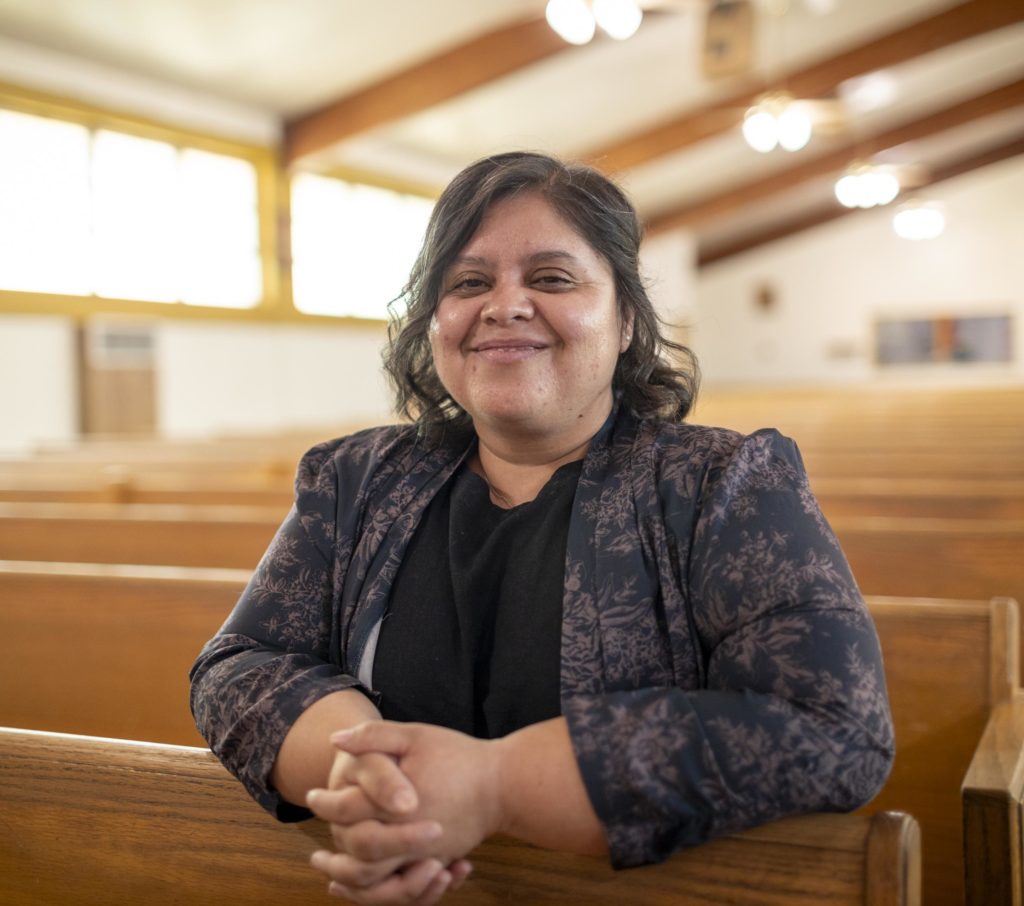
This is not what Church should look like.”
Meza grew up Catholic. As a young mother, she felt herself coming closer to God. So instead of being deterred by this experience of the Church at her worst (cold and disinterested), she found herself motivated to do something.
“I was falling in love with God, and God for me didn’t mean that I was going to be rejected in His house,” said Meza. “That impelled me to want to change things.” As our faith teaches us, a stone that the builders rejected can become a cornerstone of something beautiful.
A Church on the move
Since her eldest son’s baptism, Meza has had three more children, pictured with her below. For the sake of her children and families like her, she has dedicated her career to making the Church a more welcoming place for all.
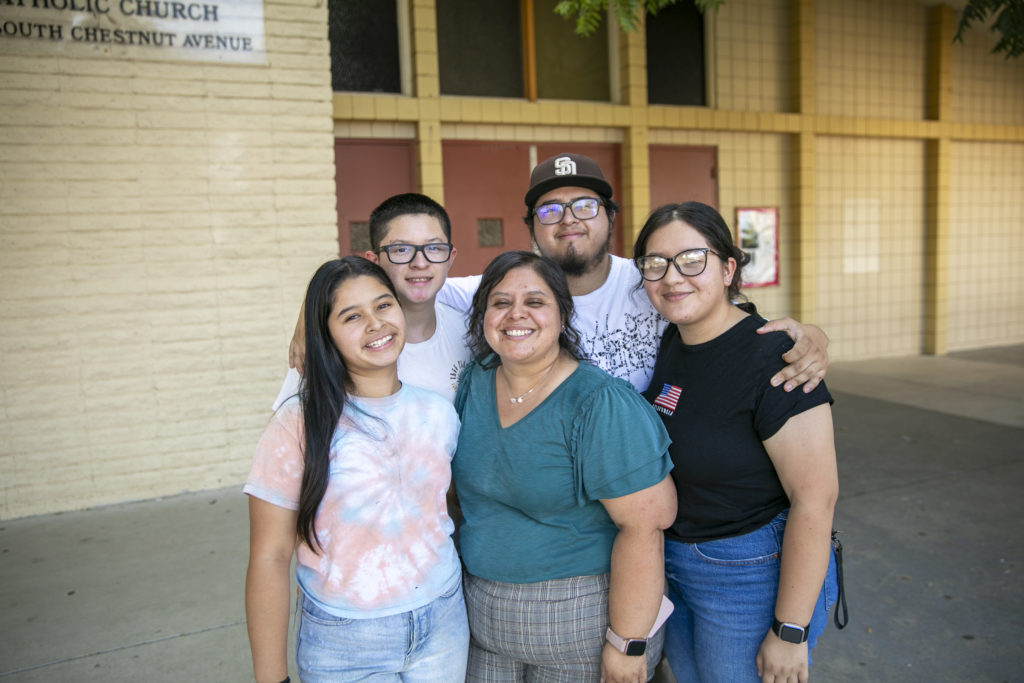
At her current parish, St. Anthony Mary Claret Church in Fresno, California, she now serves as the director of religious education.
This is not a job. She doesn’t watch the clock. Instead, she watches peoples’ faces for clues about how to serve them in the most meaningful way. She wants them to feel worthy of the Church’s warmth and pastoral care.
Meza also realizes that to be effective her ministry must go beyond the parish office. The Central Valley of California is home to many farmworkers who could never leave their work in the fields to visit her or other Church staff during regular office hours.
She trains catechists to extend the Church’s reach and embrace seasonal farmworkers and their families by visiting their camps and making sure they are seen and heard. They worship in makeshift holy spaces, such as this chapel in one of the camps.
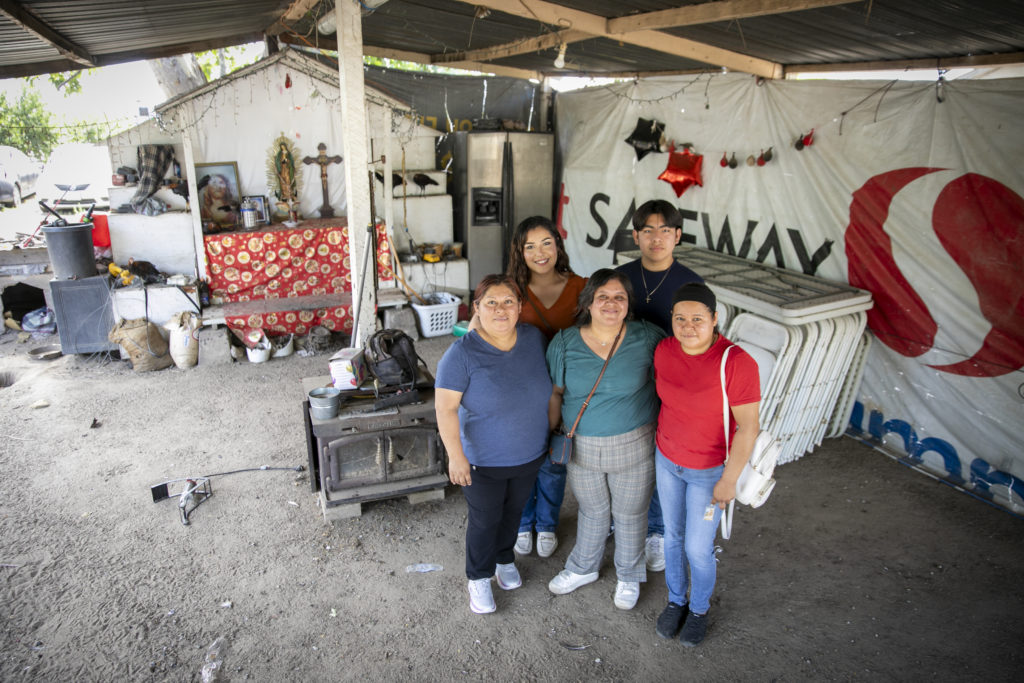
“Just sitting and listening to them goes a long way,” Meza explained. “For me it’s like I’m their representative from the Church. They can feel that their voice is important and what they go through matters.”
Meza also heads the parish’s newly founded young adult ministry program. She is instrumental in welcoming the next generation into our Church, encouraging young leaders to become involved, use their voices and deepen their relationships with God.
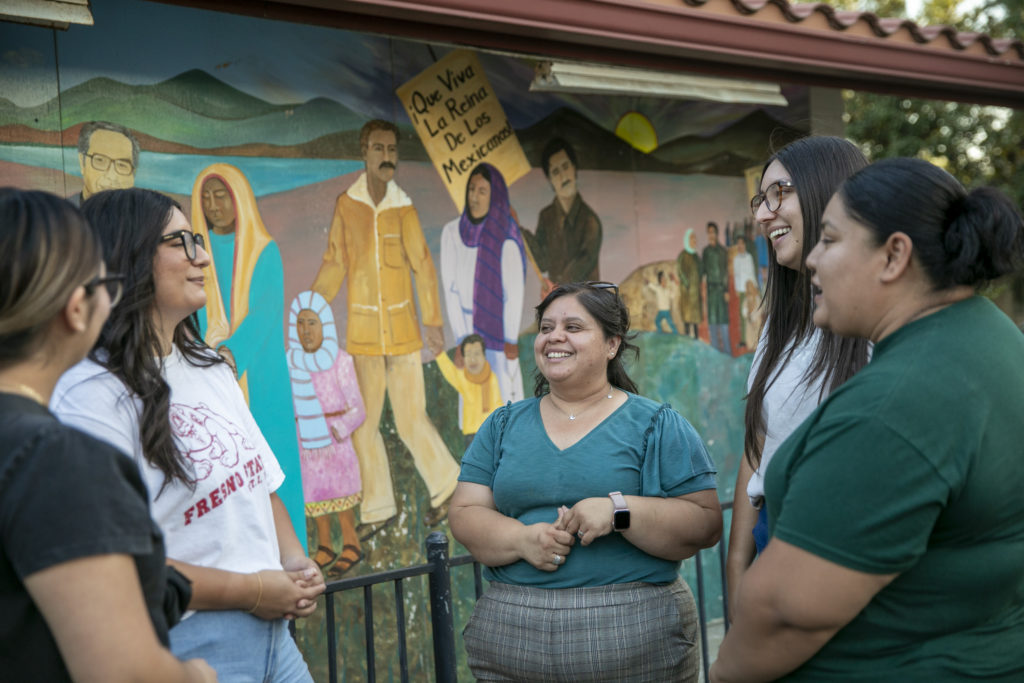
Despite the many hats she wears for her parish and the countless lives she touches, Meza is always looking for more ways to help.
“I feel like I’m not doing enough,” Meza said.
With this passion for more service in her heart and the full support of the Diocese of Fresno, Meza applied for Catholic Extension Society’s scholarship program at Boston College. She graduated with a master’s degree in theology and ministry in May 2024.
Meza said,
It means a lot to me to be empowered through education.”
Now she is excited to build on that empowerment to strengthen the many ministries she leads that help our Church grow beyond its four walls, be welcoming to everyone and lend a voice to those yearning to be heard.
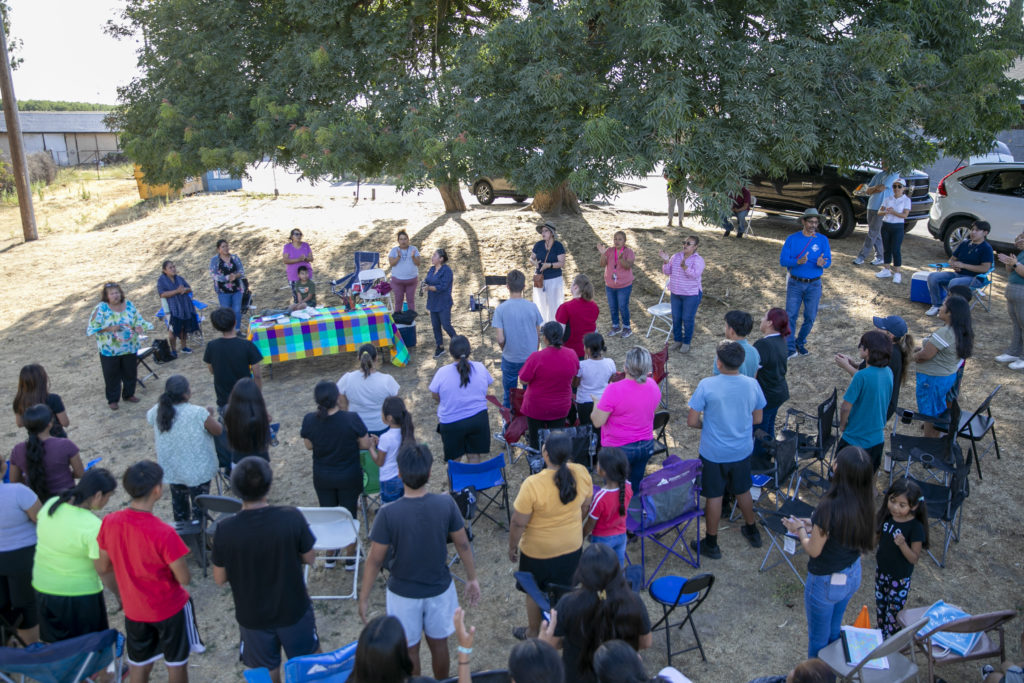
“I’ve been empowered to believe in a Church that’s always in movement,” Meza said. “There is a lot of mission work to do here, and I can expand it to be able to touch other people. Our mission is here in our own backyard.“
New hope in Yakima
Hundreds of miles north in Yakima, Washington, Valeria Flores is also invigorating faith communities.

Like Meza, she comes from a Mexican immigrant family.
Her parents instilled in her a strong work ethic and the importance of chasing her dreams. They both worked in agriculture and fruit-packing warehouses. Her mom eventually earned her GED while raising her children to provide a better future for her family.
During her teenage years, Flores volunteered as a catechist and confirmation teacher. She discovered a passion for service to God and her community. A religious sister encouraged her to participate in a retreat in which she experienced a “strong encounter with God,” she said.
I wanted to keep being involved in the Church.”
While Flores attended college, in 2018 she began working for the diocese as a bilingual administrative assistant. She initially thought her role would be temporary. However, she found once again that the work was spiritually fulfilling as she helped bring resources that allowed English- and Spanish-speaking people of all ages to deepen their faith. Her local bishop, Joseph Tyson, recognized her talents, and he expanded her ministry within the diocese.
Learning to listen
With her parents looking on proudly, Flores received a scholarship from Catholic Extension Society with her bishop’s endorsement to pursue a master’s program at Fordham University.

The classes enabled her to think creatively about ministry, particularly her role with the Diocese of Yakima as director of catechetical events. During one event Flores organized for catechists, she presented a sample lesson plan for children that she created as part of her capstone project at Fordham. The lesson plan integrated interactive videos and activities to foster enthusiastic participation among students.
Her coursework also challenged her to “listen and be present” in her interactions with catechists, especially in reaching both the English and Spanish populations. Below, she and other leaders in the diocese gather to appreciate the work of catechists.
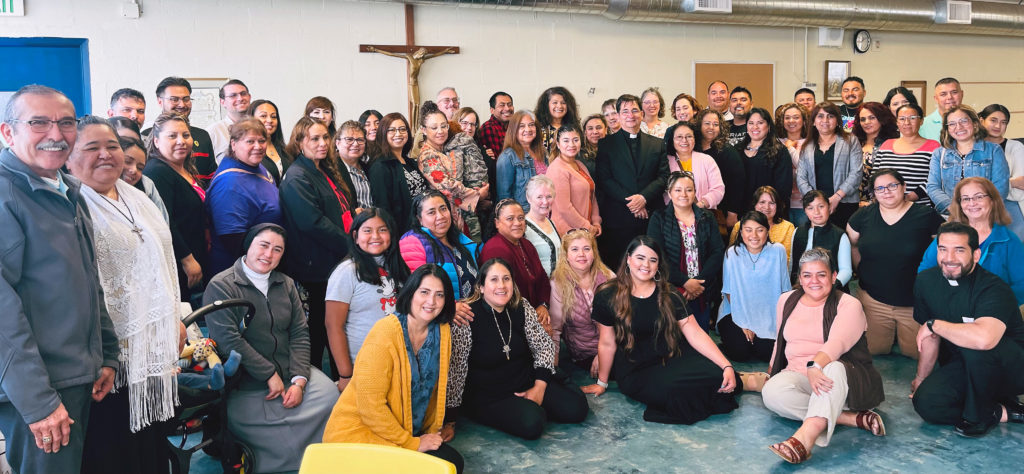
Flores has since helped catechists to improve and share their bilingual religious education curricula with families. Additionally, she has organized prayer and listening sessions, hoping to bring these communities together to encourage lasting connections.
“I’m not just the director who shows up,” Flores said.
She continued,
It is important that I’m also inclusive.”
Her efforts don’t stop there, as Flores looks to make the Church more accessible for families with special needs children. These students have learning challenges and disabilities ranging from ADHD to Down Syndrome. She is developing new strategies to help religious education instructors, including these children. For example, she aided a catechist in providing a one-on-one accommodation for a child who had difficulty learning in person; the student was able to attend classes online alongside a family member. Soon, Flores hopes to introduce training and materials that catechists can use to teach children who have unique learning needs.
As Flores launches into her career, she has a vision to build a Church that is home to all people, no matter their background, language or learning abilities.
See her describe her journey in the video below:
She emphasized,
This is just the beginning of much more,”
Flores is doing her part to help the Church go out to the people instead of waiting for the people to conform to its existing structures, schedules and usual way of doing things. This is the kind of Church that Pope Francis dreams of, and this is the Church that leaders like Flores and Meza are helping to create.
The Catholic Church is not a series of four-walled buildings, but rather a living body with many parts that is always on the move.
Alicia Meza and Valeria Flores’ stories are part of our series on the courage and conviction of women in the Catholic Church. Read more here.
Catholic Extension Society supports the work of young Catholic leaders as they develop innovative ways to build up vibrant faith communities. Please consider supporting our mission!


